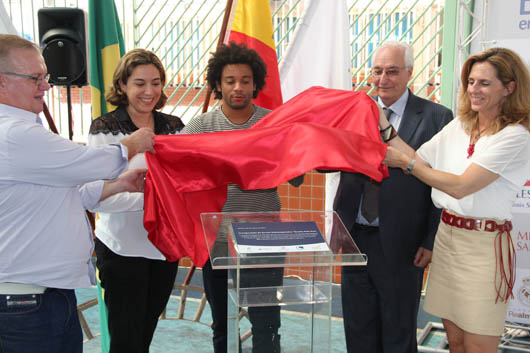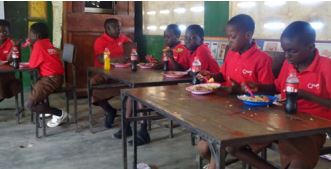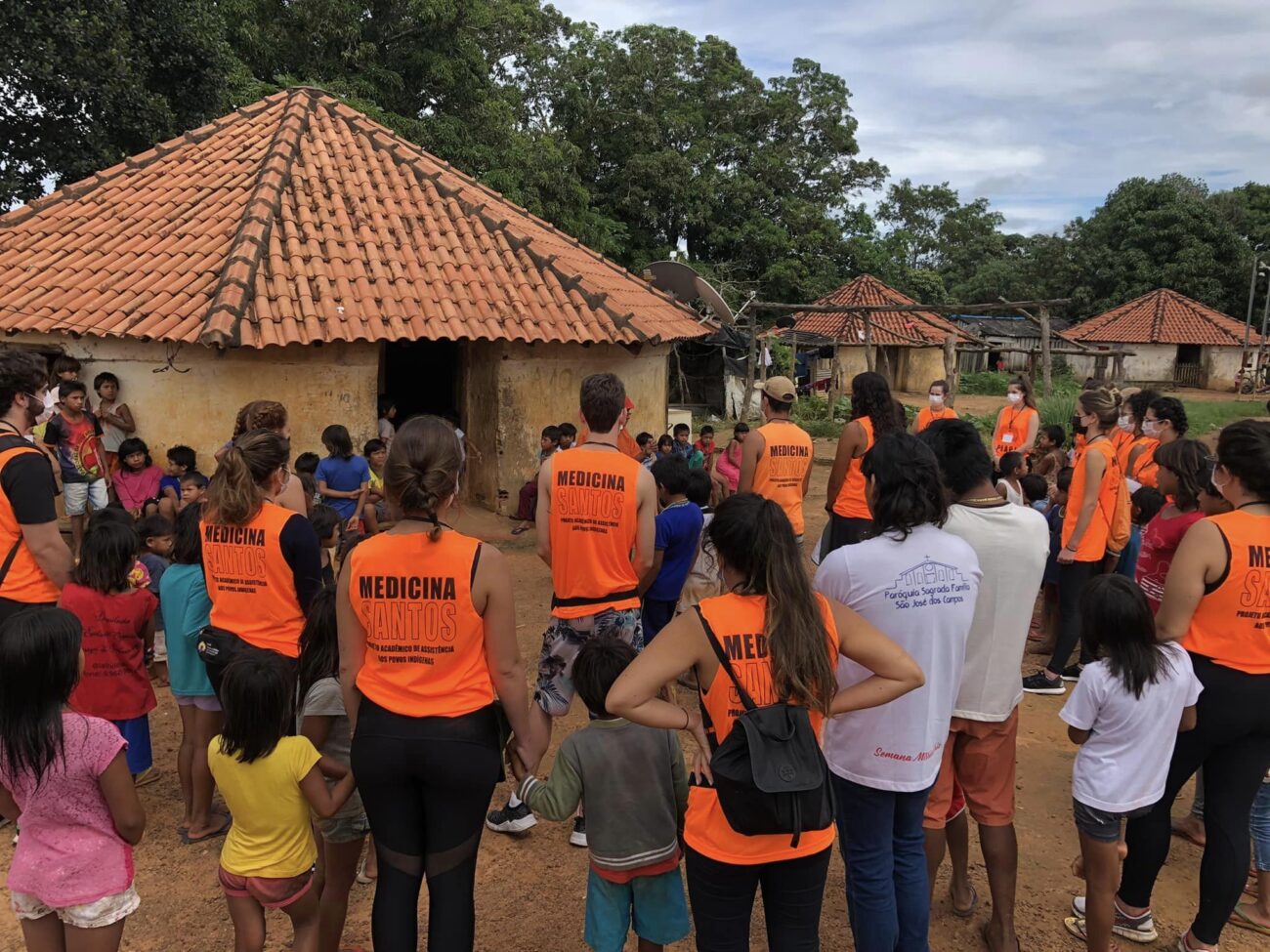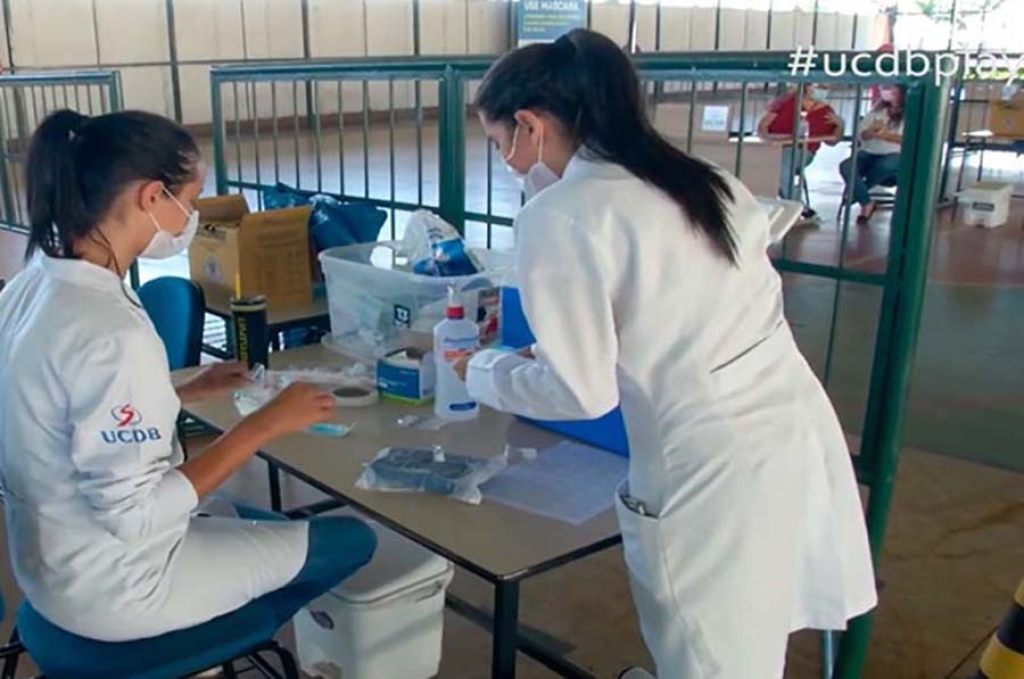BRAZIL: New Socio-Sports Program is Teaching Youth Teamwork and Social Skills

(MissionNewswire) In Brazil, the Salesians continue to develop programs and provide youth opportunities for furthering their education and skills. According to UNICEF, large gaps exist between the rich and poor in the country where one in four people live in poverty. At-risk youth are exposed to drugs and violence on a daily basis and unemployment is a fact of life for many.
Recently, a new socio-sports program was introduced at the Salesian Youth Center in the town of Niterói, near Rio de Janeiro. The program, the third of its kind in Brazil, is made possible through a collaboration between the Salesian Missions office in Madrid and the Real Madrid Foundation and will benefit close to 200 youth from the most disadvantaged areas of the city.
The program’s motto is, “They play, we educate” and participants receive nutritional, family and psychological support, regular health check ups and the opportunity to participate in social and educational workshops in activities such as gymnastics, crafts, reading and citizenship. Training sessions on topics such as health, hygiene, values and the prevention of alcohol, tobacco and drug abuse will also be provided.
Outside of normal school hours, participants in the program will receive sports training by coaches specifically qualified by the Real Madrid Foundation.
“Sports programs teach youth both on and off the field,” says Father Mark Hyde, the executive director of Salesians Missions, the U.S. development arm of the Salesians of Don Bosco. “Learning and playing team sports encourages leadership skills as well as teaches youth to work as part of a team. Students also learn important social skills and have opportunities for growth and maturity.”
At the program’s inauguration, the biggest surprise for the 200 youth in attendance was the participation of Marcelo Vieira da Silva Júnior, a player from Real Madrid and the Brazilian national team, who recently won the Confederations Cup.
The collaboration between the Salesians and the Real Madrid Foundation has been very successful, granting more than 2,000 youth and vulnerable children the opportunity to participate in similar programs around the globe. This new socio-sports program in Brazil is operating alongside 13 other socio-sporting schools in nine countries including Togo, Benin, Congo*, Ghana, Sierra Leone, Portugal, Senegal and the Dominican Republic.
Sports programs are a few among many programs helping disadvantaged youth in Brazil.
At the Don Bosco Youth Center in Cabana, youth from the slums take part in socio-educational opportunities to help close educational gaps. At the Salesian-run Community Center in Porto Alegre, street children receive three nutritious meals a day, clean clothing, medical care, schooling and a safe place to get much needed rest. And at a new Salesian-run Center in Abaetetuba, abandoned and at-risk youth take part in a wide variety of healthy and educational activities. The Center includes a recreation facility where children are able to participate on sports teams, make friends and gain a sense of accomplishment. All of the programs work with youth to help them lead productive lives and break the cycle of poverty.
Brazil is one of more than 130 countries around the globe where Salesians work to give hope and provide opportunity to vulnerable youth through education and skills training. Salesian Missions is the U.S. development arm of the Salesians of Don Bosco, working to raise funds and develop programs to aid youth and families in some of the poorest places on earth. Learn more about where the Salesians work and the programs they provide at www.salesianmissions.org.
###
Sources:
ANS – Brazil – Niterói socio-sports school inaugurated, with soccer star Marcelo
UNICEF – Brazil Statistics
Real Madrid Foundation – Website
*Any goods, services, or funds provided by Salesian Missions to programs located in this country were administered in compliance with applicable laws and regulations, including sanctions administered by the U.S. Department of Treasury’s Office of Foreign Asset Control.




